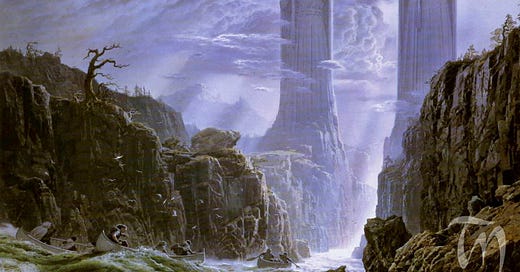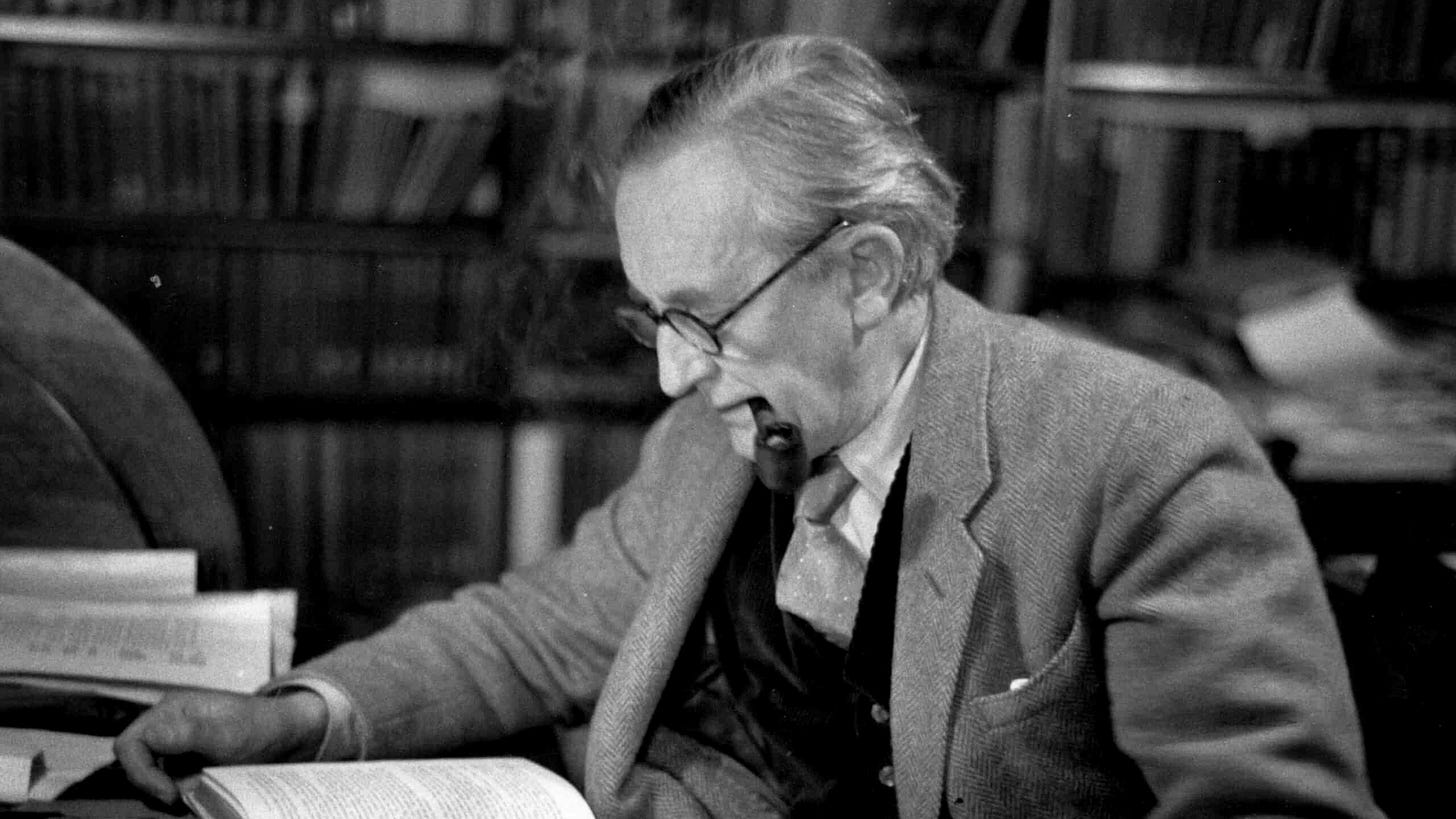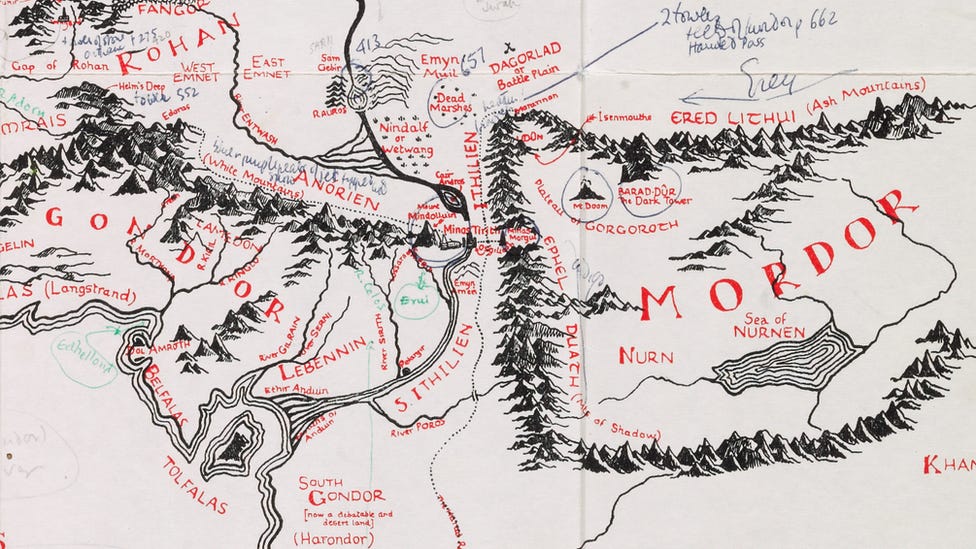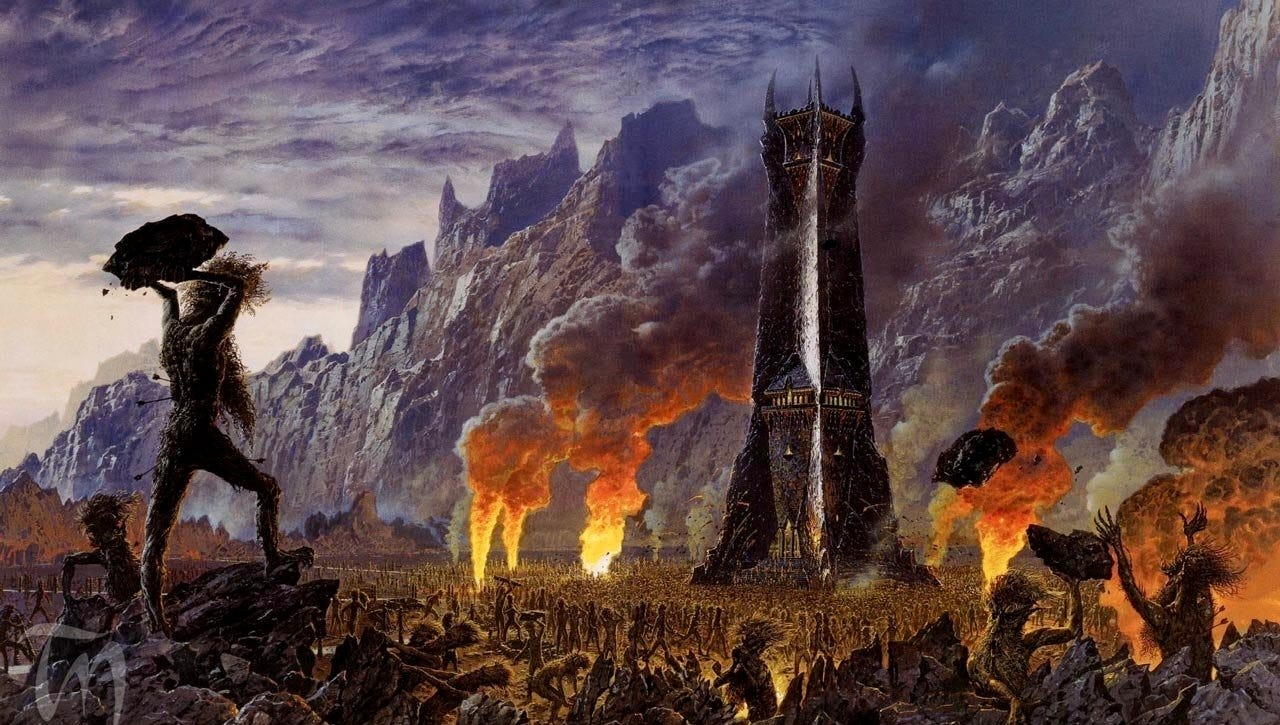We live in an age of consumption. Every screen entices you to scroll a little longer, offering up a constant stream of content, outrage, and distraction. To consume is easy, to create is anything but.
Although this sounds like a modern issue, it’s actually one that’s been around for far longer than you might realize. In fact, it's something J.R.R. Tolkien himself was acutely aware of — and he tried to warn us.
Tolkien believed that man was not made to consume the world, but to shape it. Reinforced in his conviction by his Christian faith, he worked to develop his philosophy of “sub-creation.” The concept began as a simple literary theory, but soon grew into something much deeper — a vision of human dignity, responsibility, and hope for the future.
Today, we explore Tolkien’s concept of sub-creation to discover what it can teach you about why you must create — and how you should do so. Because for Tolkien, the answer to a world addicted to noise wasn’t silence, but song.
And if you want to reclaim your sanity, your agency, and your purpose, you must first learn how to sing…
Reminder: this is a teaser of our members-only deep dives.
To support our mission and get our premium content every weekend, upgrade to a paid subscription below for a few dollars per month. You’ll get:
Full-length, deep dive articles every weekend
Members-only podcasts and exclusive interviews
The entire archive of great literature, art, and philosophy breakdowns
The Sacred Art of Sub-Creation
Tolkien coined the term “sub-creation” in his 1939 lecture On Fairy-Stories. In it, he laid out his belief that storytelling — and indeed all forms of creativity — were not distractions from truth, but expressions of it.
His theory began with his own understanding of God and the universe. As a practicing Catholic, Tolkien believed that God isn’t just the source of truth and goodness, but he’s also the ultimate Creator. And if man is made in the image of God, then he too is meant to create:
“We make because we are made, and not only made, but made in the image and likeness of a Maker.”
This was not a vague poetic metaphor. For Tolkien, to create — whether through art, music, literature, architecture, or otherwise — is to step into the pattern God established from the beginning. It means to participate in the divine order, and reflect the image of the God in which you’re made.
But why is this important? To Tolkien, an understanding of God as a creator (and yourself as being made in his image), elevates your creativity beyond mere personal expression. It means your imagination has a purpose; it ceases to be a distraction from the world, and instead becomes the means by which you fully engage with it.
Sub-creation then isn’t about ego, but obedience. You are called to create, and create you must. But if you neglect this calling, Tolkien warns, you don't just miss out on beauty — you begin to lose your humanity…
Why You Must Create
Tolkien didn’t simply write stories — he built worlds. The languages, histories, lineages, and cosmologies he breathed life into were all crafted in the quiet margins of daily life. He worked in bursts between duties as a professor, husband, father, and friend.
No publisher asked for his mythology, and no readers demanded it. But still, he wrote.
Why? Because he believed the gifts he had received (language, storytelling, etc.) weren’t his to hoard. Rather, they were to be developed through his effort and offered in service to others. Sub-creation for Tolkien wasn’t just a hobby — it was a vocation and means of growth.
Today, modern culture tries to make you forget that you don’t develop by watching, scrolling, and consuming the creations of others. You instead develop by building, and by creating — and your growth is multiplied when you create not primarily for yourself, but for the good of those around you.
At its origin, The Lord of the Rings wasn’t intended to be shared with a large audience. It instead began as a story for Tolkien’s own children, and developed organically over the course of years. Although it would achieve international fame and shape the lives of millions, its main impact on the life of Tolkien was no different. Fame or not, he had grown immensely for having written it.
All of this reveals another common misconception: that the value of your work is defined by the number of those who engage with it.
But a father who carves toys for his children, a mother who paints for her friends, or a teenager who journals for himself are all transformed by their endeavors. The act of sub-creation shapes the soul, not because of what the final product achieves, but because of what its creation demands: effort, imagination, patience, discipline, and a labor of love.
Tolkien once wrote that fairy-stories help you recover “a clear view” of the world and see with fresh eyes what you have forgotten. But the act of creating does something even more profound — it refines the one who creates. It forces you to flex your imaginative muscles, confront your limits, and overcome obstacles to bring your vision into reality.
In other words, the fruit of creation isn’t just the final product — it’s who you become by making it.
But life as a sub-creator is difficult, and Tolkien knew this well. To highlight both the struggles and rewards of creating, he wrote a short-story about it. Using a powerful allegory, he describes the biggest threat sub-creators face on their journey — and, crucially, reveals the key to overcoming it…
Keep reading with a 7-day free trial
Subscribe to The Culturist to keep reading this post and get 7 days of free access to the full post archives.








